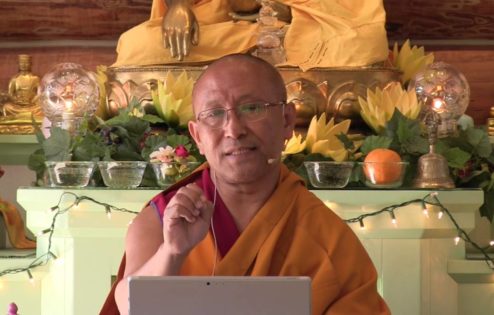emptiness
Teachings on the core of Buddhist philosophy: that persons and phenomena are ultimately empty of inherent existence because they are dependent arisings. This is the most powerful antidote that eliminates the ignorance and afflictions that give rise to suffering.
Latest Posts
View all posts in Venerable Thubten Chodron's teaching archive.
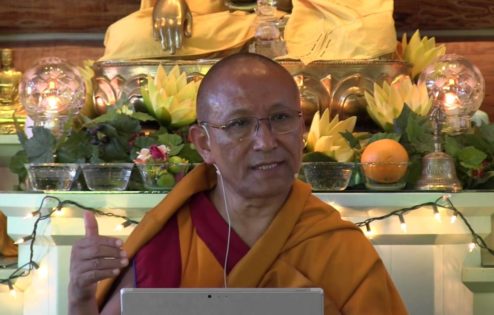
Types of dependent origination
The three types of dependent origination and how they relate to emptiness.
View Post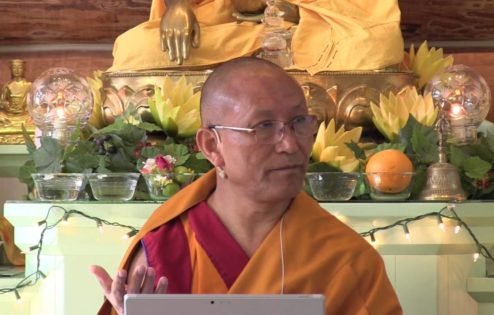
The ineffability of emptiness
Exploring paradoxical statements about emptiness in their specific context in Buddhist philosophy.
View Post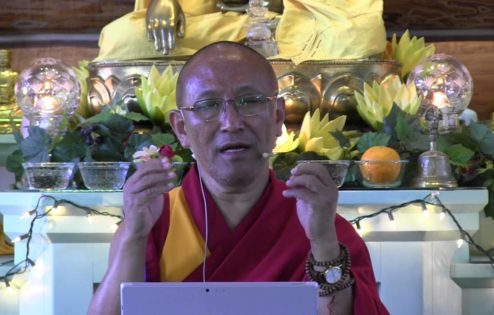
Discussion: Emptiness, ethical conduct, and mindfulness
Geshe Dadul Namgyal responds to questions on self- and other-emptiness, and on uncompounded phenomena.
View Post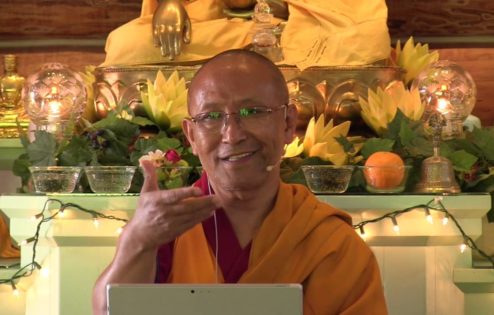
The right view of emptiness
Clarifying potential pitfalls in our understanding of emptiness.
View Post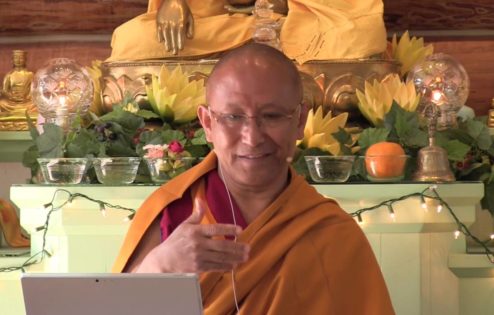
The Madhyamaka view: A review
Geshe Dadul Namgyal returns to teach on the Middle Way view of Buddhist philosophy, beginning…
View Post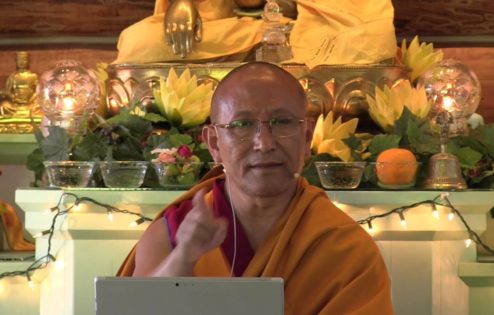
The whole and its parts
Using the reasoning of dependence on parts to show how things cannot be inherently existent.
View Post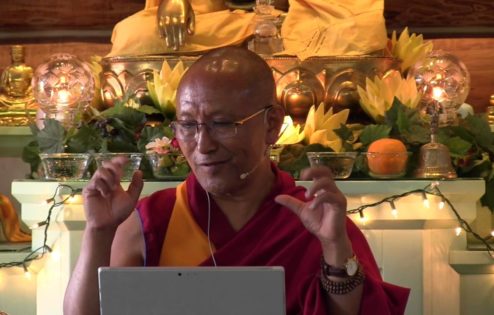
Discussion: Emptiness, ignorance, and mental states
Geshe Dadul Namgyal takes questions on emptiness and dependent arising, and the difference between dreams…
View Post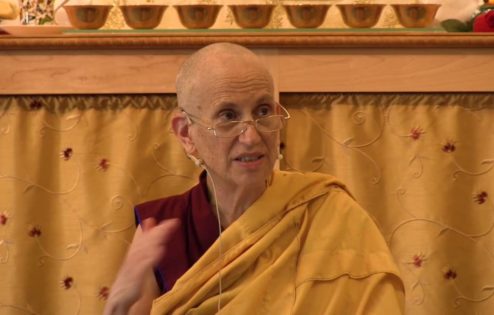
Chapter 4: Verses 364-369
The similarities and differences between the fundamental and universal vehicles, and the importance of avoiding…
View Post
Chapter 4: Verses 356-363
Refuting inherent existence with refutations of inherently existent pain and pleasure.
View Post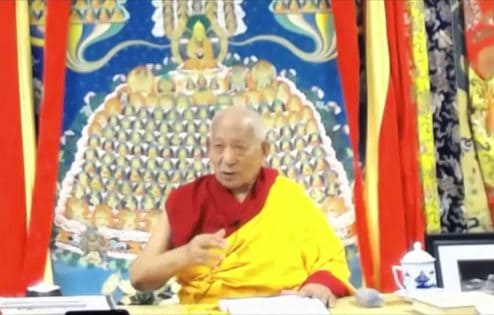
Chapter 12: Verses 295-300
Geshe Yeshe Thabkhe teaches on dependent arising and emptiness, and concludes his commentary with verses…
View Post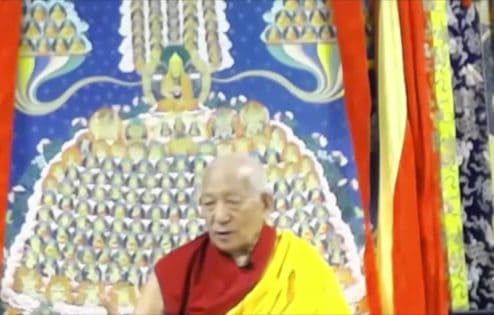
Chapter 12: Verses 286-295
Geshe Yeshe Thabkhe teaches on the importance of not lapsing from the right view, and…
View Post